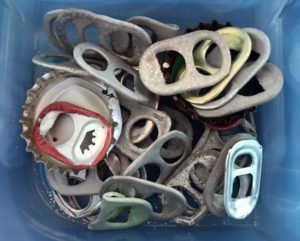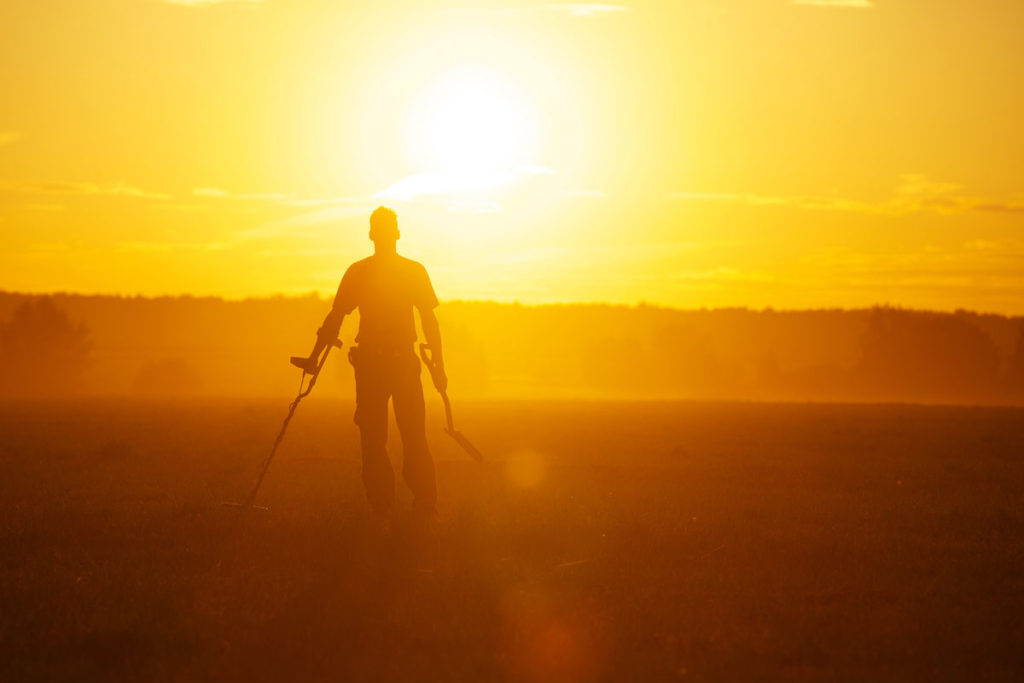Kellyco recently posted a great article by Jami Olive – 7 of the Best Kept Metal Detecting Secrets. The 7 secret topics are about clubs, gear, batteries, pinpointers, disappointment, competition, and checking twice. I thought I would consider their secrets, add a few thoughts, and a few more tips!
Let’s talk about metal detecting clubs
This bit of advice is a good one for most, but some personality types may prefer to go it alone. Have you ever thought, “If I meet other people who detect, they might steal some of my spots!” That’s not really an uncommon thought. After all, if you’re facing competition from other detectorists, it brings up a feeling that someone else might find something before you have the chance. But when you improve your skills, you can find something great even in a place crowded with other detectorists!
Or maybe you’ve had the thought, “I don’t want to feel bad about myself if other people are finding better things than me.” That can be difficult too. Sometimes in clubs you’ll encounter members who always seem to find something good! It might inspire you to go out and learn more, or it could turn you away from the hobby. Which way does it make you feel?
My advice is to never be among those who embellish their find stories. You will have much greater confidence, fun, and respect by always being honest with yourself and others. So if you are looking for some buddies, find your local club and join! Even if you don’t attend regularly, you will meet other people who know your area well and may have fantastic advice and stories to share.
Big Time Gear
Kellyco’s article suggests that bigger isn’t always better, and heavier gear might make you tired quicker. Certainly some people try to “gear up” to look more experienced. If you’re guilty of that, what kind of gear have you purchased that was a mistake? Does it prevent you from spending as much time out searching?
I can admit that when I purchased my handled scoop, I underestimated the initial toll it would take on my back! My muscles went crazy after the first time using it because I was out for hours. But now I have stronger muscles that can support using the tool. It comes down to your motivation. Don’t buy expensive, heavy or bulky gear just because you want to “look experienced.” That’s a recipe for failure. Seek the appropriate tools for YOU! If they don’t work out, consider it education and try, try again.
Extra Batteries
This is just great advice for really any piece of gear for any hobby. In my photography, it is absolutely necessary to carry extra batteries. And just like photography, a finds hunt is an active adventure where you can’t stop and plug a charger into a wall. Depending on your detector, that might mean an extra lithium ion battery or store-bought standard batteries. In either case, it’s a good thing to keep in your bag.
Here’s another thing to consider: A Solar Charger! I have one that I can clip onto my backpack and use to charge anything with a USB connector like my phone or an external battery.
Pinpointers
This one depends a lot on where and how you’re digging. When you’re digging up a plug in dirt, a pinpointer is absolutely going to save you some misery and make it easier to cleanly repair the hole. In coarse or dry sand, it may not be as necessary since a good sifting scoop may work in most conditions. Dense sand or clay will be much easier with a pinpointer for sure. The key is, don’t buy a pinpointer just because you think you “have to.” Get one when the conditions are required for you whether that’s now or in the future.
Discouraging Digs
 Sometimes you won’t find anything but pop tabs, especially if you’re in a “dig it all!” mood. I’ve had some shorter adventures like that and it can be pretty annoying in the moment. How do you handle days like that? If you’re in the hobby for the right reasons, you will likely eventually think of it as just a great day out of the house, and a pile of aluminum out of the ground. The posts you see on social media or articles you read about gold finds…those don’t happen every time. It may only happen once or twice for you. If you are looking to find more, you’re going to have to put in a LOT of work! As long as you enjoy it and look forward to some time outside, you’ll eventually get that great feeling of finding something special.
Sometimes you won’t find anything but pop tabs, especially if you’re in a “dig it all!” mood. I’ve had some shorter adventures like that and it can be pretty annoying in the moment. How do you handle days like that? If you’re in the hobby for the right reasons, you will likely eventually think of it as just a great day out of the house, and a pile of aluminum out of the ground. The posts you see on social media or articles you read about gold finds…those don’t happen every time. It may only happen once or twice for you. If you are looking to find more, you’re going to have to put in a LOT of work! As long as you enjoy it and look forward to some time outside, you’ll eventually get that great feeling of finding something special.
Don’t Worry About Competition
With beach locations, the finds change or move around all the time with the surf. Even in fields, the detectorists you see who beat you there don’t find everything! Dig up whatever they missed. Go slower, dig more. Maybe you’ll find a can full of coins. Those masked signals that other people ignore could end up being your big find.
Always Check Again
This one is pretty easy to agree with – you’ve pulled out something from a target hole…don’t fill it in until you’ve checked again! Sometimes it’s a pocket full of coins, or in some cases the way soil or sand is moved around by water can bring several items into one spot. So wave over one more time to be sure.
Top Ten Tips
So now that I’ve gone through all seven of the secrets that Kellyco provided, let’s add a few more and wrap it up into a Top Ten list!
One thing that’s missing is related to what is a standard practice in metal detecting, but may start to fall away over time if we don’t make sure new people in the hobby keep it up. That is…keep it clean! This refers not only to replacing the holes you create, but cleaning up while you work. Keep a junk bag handy and pick up plastic trash, nails and sharp metals, and make it a nicer place for everyone. I know it can be difficult particularly with plastic trash – some places might just be full of trash. If you are in a spot with a lot, perhaps make a separate trip with friends and have a clean up day or report it to local government to create a pick up day. It’s not always on you because otherwise we wouldn’t have time to dig, but you can help play a part in keeping it clean.
Mind your space. Don’t get close to where other people are enjoying their own time. And if you’re not using headphones, you should keep even farther away. Don’t assume that everyone is interested in what you’re doing and that the beeps will make them want to come talk to you. (For most of us, we don’t want people talking to us anyway.) Keep your distance, respect the privacy of others especially on beaches.
You don’t have to restrict your detecting on beaches to dawn and dusk, but if you are out with others, it’s polite to keep a distance. Rule of thumb: You should have a bubble of space around you as big as an average swimming pool at minimum. Anything less than that and you will risk annoying people. We want to keep this hobby from being discouraged, so if in doubt, more space is better.
The Final Top Ten List
- Keep at it – don’t get discouraged by off days.
- Keep it clean – it should look like you never dug there, and cleaner than you found it.
- Mind your space – don’t get too close to other people and keep the noise to yourself.
- Don’t blindly follow advice – not all advice (even from experts) will work for you.
- Check it twice! – Just like Santa, don’t forget to check again.
- Invest in only the most appropriate gear for you.
- But definitely get backup batteries and spare parts.
- You might find something the other detectorist missed – don’t let competition fool you into leaving.
- Find your own way to enjoy – If you want to talk with others, join a club. You might prefer keeping your own private journal or blog. Follow or use the hashtag #FindsClub on Instagram!
- Don’t be a show off – always be honest about what you find and you’ll have a lifetime of fun.
Metal Detecting is for Anyone. Some people have a mental image that is outdated and incorrect. Metal detecting may not be something that everyone will enjoy, but men and women of all ages might love it. Don’t be afraid of the stereotype or let it prevent you from enjoying yourself or just giving it a try.
I will be anxious to see what your thoughts are about these tips. Send me a message or leave a comment below. And don’t forget, I offer metal detecting lessons here in South Florida if you want to learn how to detect and see if you like it!

